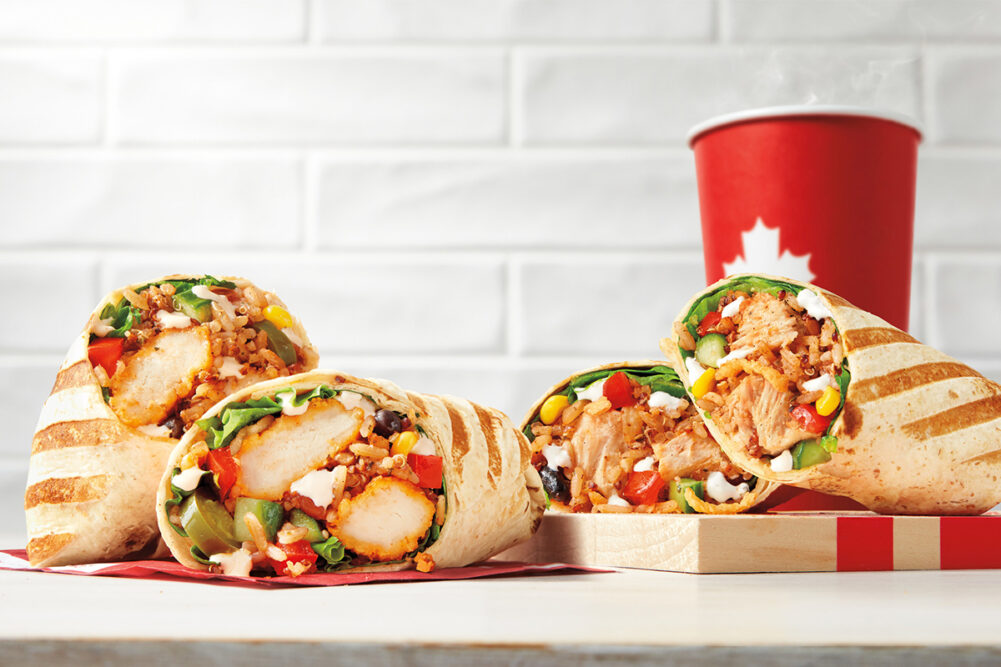TORONTO — Thanks to comparable-store sales growth of 12%, Tim Hortons had more sales in the second quarter ended June 30 than in the second quarter of 2019, which marked a continued rally from times of COVID-19 restrictions.
“This performance was a result of continued improvements in our core breakfast, baked goods and coffee offerings, extensions to our p.m. food and cold beverage lineup, and our second collaboration with Justin Bieber, all of which have been aided by increased mobility and targeted strategic pricing initiatives,” said José E. Cil, president of Restaurant Brands International, Inc., Tim Hortons’ parent company, in an Aug. 4 earnings call.
Systemwide sales at Tim Hortons were $1.84 billion, up 16% from $1.64 billion in the previous year’s second quarter and up 7% from $1.72 billion in the second quarter of 2019. Digital sales at Tim Hortons increased by double-digit percentages in the quarter.
Tim Hortons introduced loaded wraps in May and then loaded bowls in June.
“Not only has the loaded platform delivered strong sales, it’s also benefited our customer mix,” Mr. Cil said. “These new p.m. menu items have allowed us to drive improvements in preference measures for Tims with younger guests and have reengaged existing guests that historically frequent attendance for breakfast and snacks only.”
COVID-19 restrictions this year continued to impact restaurants negatively in Canada, where Tim Hortons had systemwide sales of $1.57 billion, up from $1.40 billion in the previous year’s second quarter.
“Canada is in a very different stage versus the US in terms of post-pandemic transition,” Mr. Cil said. “Restrictions just recently eased. There’s still signs of pent-up demand and accumulated savings in the marketplace.”
Inflation is a problem globally, including in Canada.
“They’re conscious of pricing,” Mr. Cil said of Canadians. “They’re conscious of service. They’re conscious of convenience, and I think we do exceptionally well in those three categories.”
The second quarter for Tim Hortons went better in 2022 than in recent years. Comparable-store sales increased 0.5% in the second quarter of 2019 and then fell 29% in the second quarter of 2020. Comparable-store sales jumped 28% in the second quarter of 2021.
Toronto-based RBI in the quarter had net income of $346 million, or 77¢ per share on the common stock, which was down 12% from $391 million, or 84¢ per share, in the previous year’s second quarter. Revenue in the quarter was $1.64 billion, up 14% from $1.44 billion. Comparable store sales growth was 10% at Burger King and 1.4% at Popeyes.




